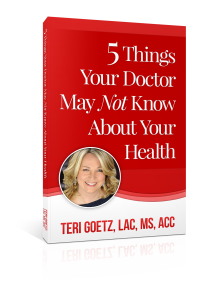Cinnamon (Cinnamomum Zeylanicum)
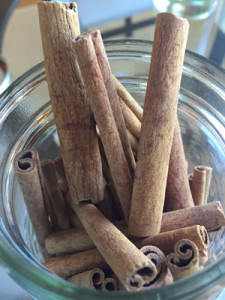
I bet 75% of the world could ID cinnamon by smell alone. That pungent fragrance that brings to mind pumpkin pie, mulled cider, cinnamon rolls, Indian spice markets, and our grandma—it’s delicious and comforting. Guess what? It’s also really good for you! Unlike the other ingredients in the Powerhouse Tea, cinnamon is not a leaf, and therefore is not an herb. It is made from the bark of the cinnamomum tree and is considered a spice. Cinnamon is an amazing natural healer and it:
- regulates blood sugar
- is high in antioxidants (It’s the #7th best anti-oxidant herb on the planet!)
- lowers cholesterol
- helps with weight loss and digestion
- inhibits h pylori and other microbes
- lessens pain and fever
- regulates hormones
- reduces chronic inflammation
- high in many nutrients and fiber
It has an amazing ability to preserve things and to help heal and guard the body against pathogens and aging. In addition to adding it to your powerhouse tea, You can supplement using cinnamon capsules and adding it to many dishes. A recent study showed that cinnamon was one of top 4 herbs to reduce the chance of UTI’s or candida (yeast) (Oregano, another herb in our powerhouse tea, was the number 1 herb, by the way.)
Many studies show that cinnamon improves insulin resistance, helps with weight control, and regulates blood sugar via its high polyphenol (natural antioxidant) count and by stimulating insulin receptors. Because stabilizing blood sugar is key to weight loss, cinnamon is a great supplement for diabetics and hypoglycemics and it also helps you keep your energy level steady throughout the day. Sugar cravings come when blood sugar is low. You feel tired before you realize what’s going on, and so you grab for more quick energy fixes like sugar or carbs. Drinking a tea with cinnamon will help with those peaks and valleys, and will inhibit random food cravings.
While more research is needed, studies show that cinnamon is also effective at inhibiting h pylori bacteria, as well as other pathogens. It also has been shown to reduce inflammatory cytokines (proteins which have an effect on cells or between cells) which means it can lessen pain. Because it contains a compound called cinnamaldehyde, cinnamon seems to reduce menstrual pain and regulate female hormones, thus helping with infertility by increasing progesterone and decreasing testosterone. Showing promise in many neurodegenerative diseases like MS, Parkinsons, Alzheimer’s and meningitis, cinnamon reduces the chronic inflammation linked to these disorders, according to recent studies.
Cinnamon contains more than 80 nutrients, including Vitamins A and C, zinc, calcium iron, and manganese and even some fiber when it’s ground. In fact, it contains 3.6 g of fiber per tablespoon—which is a lot for a spice!
Two kinds of cinnamon:
Most of what you taste or smell today is cassia, but you want ceylon cinnamon. Make sure you’re using the right one.
Besides our tea, there are different ways to use it: Add it to your morning smoothie, use it in desserts, on dishes like chicken (even a dry rub for flank steak), baked apples, and more.
You can also use cinnamon and raw honey as a facemark for acne. Just mix it together and apply to your face, then wash off.
Astragalus (Astragalus membranaceus)
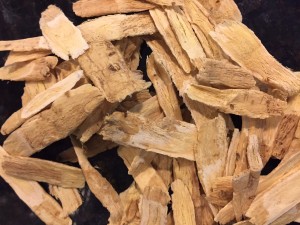
Unlike the other ingredients in the Powerhouse Tea, you may have never heard of this magical root. Astragalus, when you buy it from an herbalist, comes in large dried slices of the root of the astragalus plant. Even Western medicine is taking notice at last: a growing number of oncologists are recommending astragalus root—either as a tea or a tincture—to revitalize the immune systems in their post-chemo patients. It is powerful medicine and can:
- boost the immune system
- enhance strength
- regulate metabolism
- act as an adaptogen
- assist with seasonal allergies
- help with congestive heart failure and post-stroke damage
- aid in preventing many serious diseases
- act to slow the effects of aging
In Chinese medicine we use this herb a lot, mainly to boost the immune system, enhance strength, and regulate metabolism. We use the dried root of the plant,
available at most health food/herbaltores. Known as Huang Qi, it is used as a “qi” tonic. It is known also as an “adaptogen”—it helps the body adapt to stress. Some people label astragalus the “natural flu vaccine” as it builds your immune system.
Studies have shown that it also helps with seasonal allergy symptoms, post-stroke damage, and even helps people with congestive heart failure. The Chinese Journal of Integrative Medicine published an article in 2011 recommending moderate doses of astragalus to help with optimal heart contraction after noting a study on patients with congestive heart failure.
A lot of research has come out of China on two chemical compounds of this herb: polysaccarides and saponins. It’s shown to have a role in preventing and treating aplastic anemia, cancer, genital herpes, congestive heart failure, kidney disease, AIDS, lupus, oral herpes, flu and respiratory infections.
And here’s some really exciting news around anti-aging. Telomeres are the “caps” on the end of DNA strands that help protect the chromosome. Every time our cells divide, the telomeres shrink and eventually no longer divide — and our body stops making those cells. Eventually, this leads to aging and death. There’s some good research out there that points to astragalus maintaining the length of telomeres…hence, slowing the aging process.
Now that you know all about the ingredients in the Powerhouse Tea, feel free to delve into the healing and restorative traits of other herbs and spices.
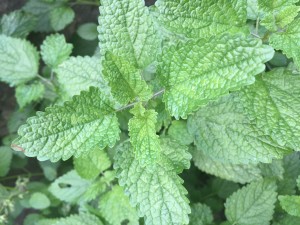

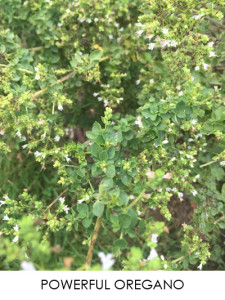 People mistakenly lump herbs in with culinary spices. But herbs are more than just leaves we use to flavor our food. They are also powerful medicine. Herbs contain volatile oils, acids, polysaccharides, vitamins, minerals, and more, all of which pack them with countless health supporting qualities. The fresher the ingredients, the stronger the benefits. Making a tea (or “soup” in Chinese medicine) from herbs and spices generally pulls the powerful elements out of them more strongly than if you were to use them dried or ground.
People mistakenly lump herbs in with culinary spices. But herbs are more than just leaves we use to flavor our food. They are also powerful medicine. Herbs contain volatile oils, acids, polysaccharides, vitamins, minerals, and more, all of which pack them with countless health supporting qualities. The fresher the ingredients, the stronger the benefits. Making a tea (or “soup” in Chinese medicine) from herbs and spices generally pulls the powerful elements out of them more strongly than if you were to use them dried or ground.
